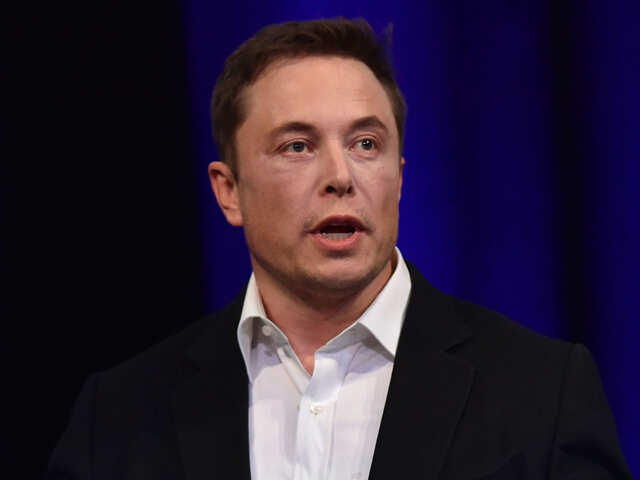EU Targets Russian Gas: Spot Market Phaseout Plans

Table of Contents
The Rationale Behind the EU's Plan
The EU's decision to drastically reduce its dependence on Russian gas is driven by a confluence of geopolitical and economic factors. The war in Ukraine exposed the inherent risks of relying heavily on a single, unreliable supplier, particularly one with overtly hostile geopolitical intentions. This reliance created significant vulnerabilities, both economically and strategically.
- Reduced geopolitical vulnerability: The EU aims to lessen its dependence on a single supplier, mitigating the risk of energy blackmail and political pressure. Diversifying energy sources is key to enhancing the EU's resilience against external shocks.
- Strengthening energy security: Reducing reliance on Russian gas is paramount to strengthening the overall energy security of the EU member states. This involves securing alternative supply routes and diversifying energy sources.
- Diversification of energy sources: The EU is actively pursuing a strategy of diversification, exploring alternative gas suppliers and significantly investing in renewable energy infrastructure. This involves forging new partnerships and strengthening existing ones with reliable energy providers.
- Support for Ukraine: Reducing demand for Russian gas directly impacts Russia's revenue streams, thereby reducing Russia's capacity to fund its war effort in Ukraine. This economic pressure is a crucial element of the broader EU response to the conflict.
- Meeting climate change goals: The transition away from fossil fuels, including natural gas, is a critical aspect of the EU's commitment to achieving its ambitious climate targets and transitioning to a more sustainable energy future. This shift aligns with the EU's Green Deal and its longer-term objectives.
Specifics of the Spot Market Phaseout
While the exact timeline varies across member states, the EU is committed to significantly reducing its reliance on Russian spot market gas purchases. This isn't a simple on/off switch; it's a complex, multi-faceted strategy involving a gradual reduction, rather than an immediate complete ban.
- Specific dates or target years: While a concrete, universally applicable date isn't set for complete phaseout, many member states have outlined ambitious targets for the reduction of Russian gas imports within specific timeframes.
- Regulatory changes and legal frameworks: The EU is implementing and strengthening regulatory frameworks to support the transition. This includes measures designed to promote diversification and incentivize investment in alternative energy sources.
- Financial incentives for switching to alternative suppliers: Various financial mechanisms and incentives are being put in place to encourage businesses and consumers to switch to alternative suppliers and energy sources.
- Investments in renewable energy infrastructure: Massive investments are being made in renewable energy infrastructure, including wind, solar, and other sustainable options, to replace the energy provided by Russian gas.
Challenges and Obstacles in Implementing the Plan
The EU's plan to phase out Russian gas faces significant challenges. Securing alternative supplies, managing price volatility, and overcoming infrastructural limitations are just some of the hurdles.
- Finding alternative gas suppliers and securing sufficient supply: The global gas market is volatile, and finding reliable alternative suppliers capable of meeting the EU's enormous demand is a significant undertaking.
- Potential price volatility and increased energy costs for consumers: The transition may lead to price fluctuations and potentially higher energy costs for consumers in the short term, requiring careful management and mitigation strategies.
- Infrastructure limitations and the need for upgrades: The existing energy infrastructure in many EU member states may need significant upgrades and expansion to accommodate new energy sources and supply routes.
- Political opposition and lobbying efforts from vested interests: The phaseout faces potential resistance from vested interests that benefit from the current system, requiring strong political will and effective communication strategies.
Alternative Energy Sources and Strategies
The EU is pursuing a multi-pronged approach to replace Russian gas, focusing on diversification and a rapid expansion of renewable energy.
- Increased reliance on LNG imports: Liquefied natural gas (LNG) imports are being utilized as a bridging solution while renewable energy infrastructure is built up.
- Expansion of renewable energy sources (wind, solar, etc.): Massive investments in wind and solar power, as well as other renewables, are underway to fundamentally shift the EU's energy mix.
- Energy efficiency measures and conservation efforts: Improving energy efficiency across various sectors is crucial to reducing overall energy consumption and the reliance on gas.
- Development of domestic gas production: Some EU members are exploring options to increase domestic gas production, though this is considered a transitional measure.
- Strengthening energy cooperation within the EU and with international partners: Collaboration within the EU and with international partners is vital to securing stable and diversified energy supplies.
Conclusion: EU Targets Russian Gas: Spot Market Phaseout – A Necessary Step Towards Energy Independence
The EU's plan to phase out Russian gas, focusing particularly on spot market purchases, is a complex but crucial undertaking for the bloc's energy security and geopolitical independence. While challenges remain, including securing alternative supplies and managing potential price volatility, the long-term benefits of reduced reliance on a hostile supplier are undeniable. The strategic shift towards diversification, renewable energy, and enhanced energy efficiency is a necessary step towards a more sustainable and secure energy future for the EU. The transition will require continued investment, strong political commitment, and collaborative efforts from all stakeholders. Stay informed about the progress of this initiative and explore how you can contribute to a more sustainable energy future. Learn more about EU targets for Russian gas reduction and explore resources for energy efficiency and renewable energy options.

Featured Posts
-
 Tesla Space X And The Epa The Impact Of Regulatory Scrutiny And Elon Musks Actions
Apr 24, 2025
Tesla Space X And The Epa The Impact Of Regulatory Scrutiny And Elon Musks Actions
Apr 24, 2025 -
 Chalet Girls Unveiling The Reality Of Luxury Ski Season Work
Apr 24, 2025
Chalet Girls Unveiling The Reality Of Luxury Ski Season Work
Apr 24, 2025 -
 Spot Market In Focus Eus Strategy For Russian Gas Elimination
Apr 24, 2025
Spot Market In Focus Eus Strategy For Russian Gas Elimination
Apr 24, 2025 -
 Wga And Sag Aftra Strike The Impact On Hollywoods Future
Apr 24, 2025
Wga And Sag Aftra Strike The Impact On Hollywoods Future
Apr 24, 2025 -
 Bof As View Why Investors Should Remain Calm Despite High Stock Market Valuations
Apr 24, 2025
Bof As View Why Investors Should Remain Calm Despite High Stock Market Valuations
Apr 24, 2025
